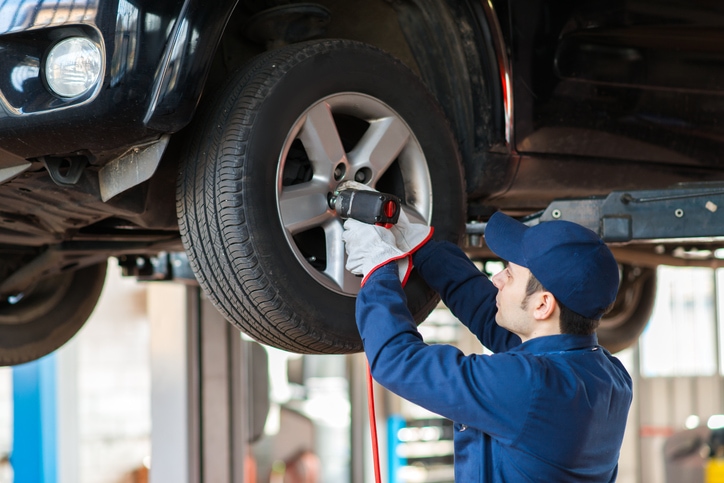Introduction
Maintaining your car is essential to ensure its longevity, performance, and safety. Regular car maintenance can prevent costly repairs and breakdowns while keeping your vehicle running smoothly. This guide covers the fundamental car maintenance services every car owner should be familiar with.
1. Oil Changes
Importance: Oil lubricates the engine’s moving parts, reducing friction and preventing overheating. Over time, oil breaks down and becomes contaminated, reducing its effectiveness.
Frequency: Typically every 3,000 to 5,000 miles, though some modern vehicles can go up to 7,500 or even 10,000 miles between oil changes. Always refer to your owner’s manual for specific recommendations.
Procedure:
- Drain the old oil.
- Replace the oil filter.
- Add new oil as per the manufacturer’s specifications.
2. Tire Maintenance
Importance: Properly maintained tires ensure good traction, fuel efficiency, and overall vehicle safety.
Key Services:
- Tire Rotation: This involves changing the position of the tires to ensure even wear. Recommended every 6,000 to 8,000 miles.
- Tire Balancing: Balancing ensures that the tire and wheel weight is evenly distributed, preventing vibrations. This is typically done during rotation.
- Wheel Alignment: Adjusting the angles of the wheels so they conform to the manufacturer’s specifications. Misalignment can cause uneven tire wear and handling issues.
3. Brake Service
Importance: The braking system is crucial for vehicle safety, requiring regular inspection and maintenance.
Key Services:
- Brake Pads and Shoes: These components wear down over time and should be replaced before they are too thin.
- Brake Fluid: Brake fluid should be checked regularly and replaced as per the manufacturer’s schedule to maintain proper hydraulic pressure.
4. Fluid Checks and Replacements
Importance: Various fluids in a car help with lubrication, cooling, and other critical functions. Regular checks and replacements are vital for optimal performance.
Key Fluids:
- Engine Oil: As discussed earlier, essential for engine lubrication.
- Coolant/Antifreeze: Keeps the engine from overheating. Typically replaced every 30,000 miles or as recommended.
- Transmission Fluid: Ensures smooth gear shifts. Check levels regularly and replace as per the manual.
- Brake Fluid: Maintains hydraulic pressure in the braking system.
- Power Steering Fluid: Facilitates easy steering. Check levels regularly.
- Windshield Washer Fluid: Important for maintaining visibility. Refill as needed.
5. Battery Maintenance
Importance: The battery powers the electrical components and is essential for starting the engine.
Maintenance Tips:
- Regular Inspection: Check for corrosion on terminals and ensure a secure connection.
- Voltage Check: Use a voltmeter to ensure the battery is holding a charge. A fully charged battery should read about 12.6 volts or more.
- Replacement: Typically every 3 to 5 years, depending on usage and climate conditions.
6. Air Filter Replacement
Importance: The air filter prevents dirt and debris from entering the engine, ensuring optimal performance and efficiency.
Frequency: Generally every 12,000 to 15,000 miles, but it can vary based on driving conditions.
7. Spark Plug Replacement
Importance: Spark plugs ignite the fuel-air mixture in the engine’s cylinders. Worn-out spark plugs can cause misfires, poor fuel economy, and difficulty starting the engine.
Frequency: Typically every 30,000 miles, but high-performance or long-life spark plugs may last up to 100,000 miles.
8. Belt and Hose Inspection
Importance: Belts and hoses are crucial for the operation of various engine components. Regular inspection can prevent breakdowns and engine damage.
Key Components:
- Serpentine Belt: Drives multiple peripheral devices in the engine.
- Timing Belt: Ensures the synchronization of the engine’s camshaft and crankshaft. Replace according to the manufacturer’s schedule, usually between 60,000 to 100,000 miles.
- Hoses: Check for leaks, cracks, or soft spots, and replace as necessary.
Conclusion
Regular car maintenance is crucial for ensuring your vehicle’s reliability, safety, and longevity. By adhering to a consistent maintenance schedule and addressing issues promptly, you can avoid major repairs and enjoy a smooth driving experience. Always refer to your vehicle’s owner manual for specific maintenance recommendations and intervals tailored to your car’s make and model.


